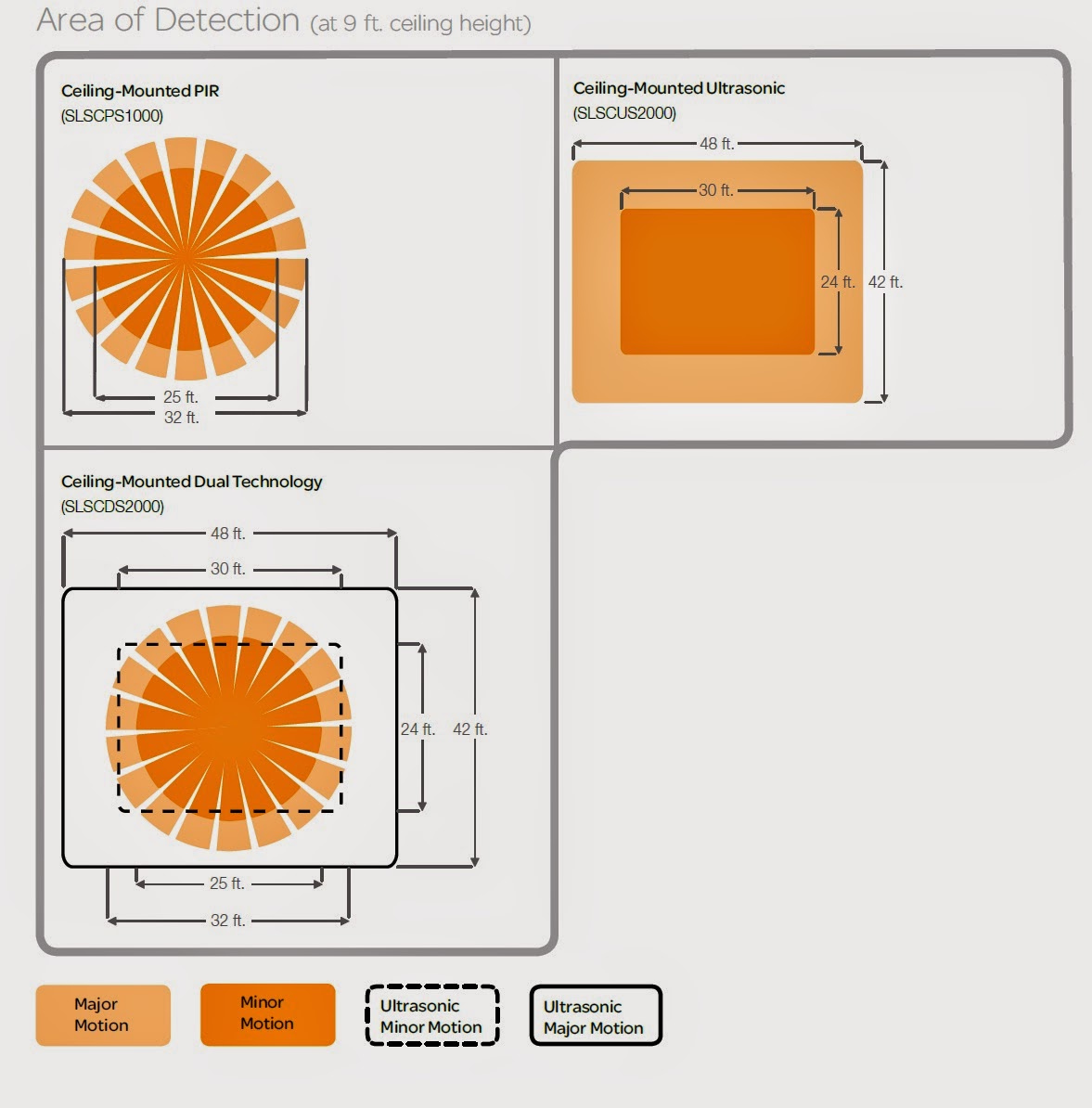Mounting Configuration of Occupancy Sensors
Determining the mounting configuration and location for a Occupancy Sensor is a critical design decision. The mounting configuration ,in particular ,affects the available coverage area. Improper mounting location is a leading cause of application problems with occupancy sensors.
Mounting can be done at the following locations:
Mounting can be done at the following locations:
- Ceiling
- High Wall and corner
- Wall switch( Wall box)
- Workstation
Ceiling
Appropriate for large areas that feature obstacles such as partitions,in addition to narrow spaces such as corridors and warehouse aisles. Units can be networked for control of areas that are larger than what can be controlled be a single sensor. Typically 2-2 times higher installed cost than wall switch sensors but can be economical if controlling large zones.
High Wall and Corner
Similarly appropriate for coverage of large areas that feature obstacles.
Wall Switch (Wall Box)
Appropriate for smaller enclosed spaces such as private offices with clear line of sight between sensor and task area. Relatively inexpensive and easy to install. For maximum savings,select sensors that provide positive disconnect from the power when the lights are off to avoid residual power use during off state.
Workstation
Appropriate for individual cubicles and workstations.
SELECT MOUNTING CONFIGURATION
Mounting Sensor Angle Of Typical Optimum
Location Technology Coverage Effective Range Mounting Ht
Ceiling US 360 500-2000 sq.ft 8-12 ft
Ceiling PIR 360 300-1000 sq.ft 8-30+ ft
Ceiling DT 360 300-2000 sq.ft 8-12 ft
Wall Switch US 180 275-300 sq.ft 40-48 in.
Wall Switch PIR 170-180 300-1000 sq.ft 8-15 ft
Corner Wide view PIR/DT 110-120 to 40 ft 8-15 ft
Corner narrow view PIR 12 to 130 ft 8-15 ft
Corridor US 360 to 100 ft 8-14 ft
High Mount PIR 12-120 to 100 ft to 30 ft
High Mount corner DT 110-120 500-1000 ft 8-12 ft
High Mount Ceiling DT 360 500-1000 ft 8-12 ft
US= Ultrasonic Sensor PIR= Passive Infrared Sensor DT= Dual Technology Sensor
images courtesy Schneider Electric





Comments
Post a Comment